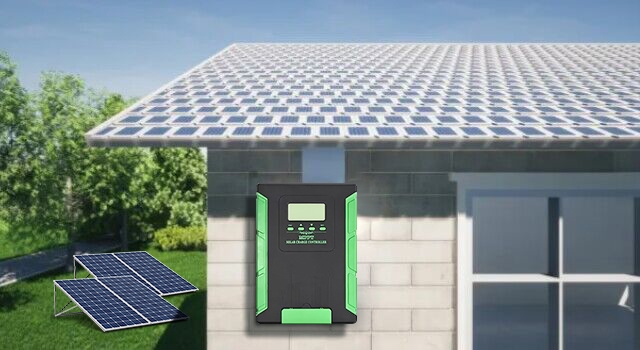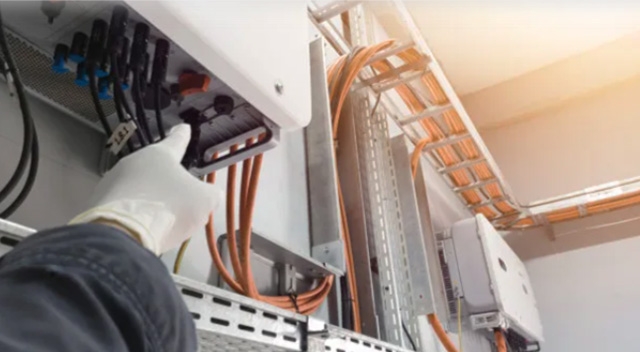Solar energy has become one of the most prominent renewable energy sources globally, thanks to its sustainability and decreasing costs. At the heart of solar energy systems is the solar charge controller, specifically the Maximum Power Point Tracking (MPPT) type, which optimizes the energy harvest from solar panels. However, various factors can influence the performance of MPPT solar charge controllers. Understanding the factors affecting the performance of MPPT solar charge controller is crucial for enhancing their efficiency and reliability. This article will explore the various elements that influence the operation of MPPT controller.

1. Environmental Conditions
- Solar Irradiance. Solar irradiance, or the power per unit area received from the sun, is one of the most critical factors affecting MPPT performance. The efficiency of solar panels is highly dependent on the amount of sunlight they receive. In low light conditions, such as during cloudy weather or early morning and late afternoon, the performance of the MPPT controller may be hindered. A well-designed MPPT system will still manage to extract some power, but the overall energy harvested will be significantly lower compared to optimal sunny conditions.
- Temperature. Temperature plays a dual role in solar energy systems. On one hand, higher temperatures can reduce the efficiency of solar panels, causing their voltage to drop. On the other hand, the MPPT controller's ability to track the maximum power point can also be affected by temperature variations. Controllers are typically designed to operate within a specific temperature range; extreme temperatures can lead to overheating and inefficient operation. Thus, effective thermal management solutions, such as heat sinks or cooling systems, are essential for maintaining optimal performance.
- Weather Conditions. In addition to solar irradiance and temperature, other weather conditions like wind, humidity, and precipitation can influence performance. Dust and dirt accumulation on solar panels can significantly decrease efficiency, prompting the need for regular maintenance and cleaning. Furthermore, moisture can affect the electronic components of the MPPT solar controller, potentially leading to failures or reduced performance.
2. System Design
- Configuration of Solar Panels. The configuration of solar panels in a system can greatly impact MPPT performance. Series and parallel configurations yield different voltage and current characteristics. An optimal configuration allows the MPPT charge controller to effectively track the maximum power point. For instance, connecting panels in series increases voltage, while parallel connections increase current. The choice depends on the specific requirements of the system and the characteristics of the MPPT controller.
- Battery Type and State of Charge. The type of battery being used in conjunction with the MPPT controller also plays a critical role. Different battery chemistries, such as lead-acid, lithium-ion, and nickel-cadmium, have varying charge characteristics and voltage levels. The MPPT solar battery controller must be compatible with the specific battery type to function effectively. Additionally, the state of charge of the battery influences how the MPPT solar charge controller operates. A fully charged battery may cause the controller to limit the amount of power being harvested, leading to reduced overall efficiency.
- Wiring and Connections. Proper wiring and connections within the solar energy system are vital for optimal performance. Voltage drops due to long cable runs or inadequate wire sizes can result in significant power losses. It's essential to use appropriately rated cables and connectors, and to minimize the distance between the solar panels and the solar charge controller to reduce resistance and improve efficiency.
3. Hardware Quality
a. Controller Design and Features
The design and features of the MPPT solar charge controller itself are fundamental to its performance. High-quality controllers typically have advanced algorithms that allow for more precise tracking of the maximum power point. Some controllers employ techniques such as incremental conductance or perturb and observe methods, which can enhance performance under varying conditions.
b. Components and Build Quality
The quality of the components used in the MPPT controller, such as capacitors, transistors, and micro controllers, also affects performance. High-quality components tend to have better thermal management, reliability, and lifespan. Controllers made with inferior components may experience issues such as overheating, reduced efficiency, and a shorter operational life. Therefore, investing in a well-manufactured MPPT solar power controller is crucial for maximizing system performance.
4. Operational Parameters
a. Load Characteristics. The characteristics of the load connected to the solar energy system can impact the performance of the solar charge MPPT controller. Different types of loads, such as resistive, inductive, or capacitive, will draw power differently. The MPPT controller must adapt to these changing load conditions to optimize energy extraction. Moreover, if the load demands exceed the energy produced by the solar panels, the efficiency of the MPPT system may decline.

b. Maintenance and Monitoring. Regular maintenance and monitoring of the solar energy system can significantly affect the performance of the MPPT solar regulator. Routine inspections can help identify and rectify issues such as panel soiling, wiring problems, or component failures. Moreover, integrating monitoring systems can provide valuable data on system performance, enabling timely interventions and optimizations.
Conclusion:
In conclusion, the performance of MPPT solar charge controllers is influenced by a myriad of factors ranging from environmental conditions and system design to hardware quality and operational parameters. Understanding these factors can help users optimize their solar energy systems for maximum efficiency and reliability. By selecting high-quality components, designing the system appropriately, and maintaining the setup diligently, users can harness the full potential of solar energy, contributing to a more sustainable future. In the pursuit of renewable energy solutions, recognizing and addressing these performance factors is crucial for maximizing the benefits of solar technology. Inverter Online Store provides various models of MPPT solar charge controllers, if you need to buy, you can please pay more attention to our website.
